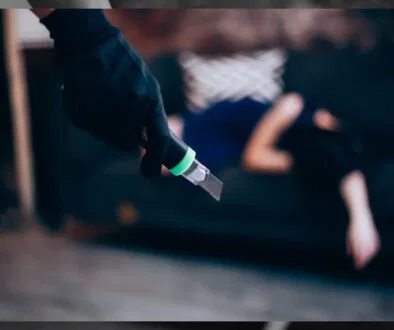What Happens to Sex Offenders in Prison?

Published February 14, 2023
There is truth to the idea that sex offenders are looked down upon in prisons. Prison culture, like the rest of society, condemns criminal sexual harassment and assault, especially when it involves acting out against children. In addition, corrections officials view sex offenders in prison differently than other types of criminals, both in terms of measuring the hazards they pose and the risks they experience.
The regulations regarding sex offenders in Florida are some of the toughest in the US. The event that led to this judgment took place in 2005 and involved a little girl named Jessica Lunsford, who was just nine years old at the time. The effort for more strict sex offender legislation is named Jessica’s Law. Offenders found guilty of sex offenses against children under the age of 12 are subject to a mandatory minimum sentence of 25 years in prison and permanent GPS monitoring upon their release.
How are Sex Offenders in Prison Treated?
As with all criminal defendants, sexual offenders worry about what happens to sex offenders in prison. Also, the most important indication of the quality of life is the prison’s security level. All inmates will experience a more unpleasant time in prison as the security level increases. What makes sex offenders different is that they must consider the severity of their crimes.
The prison’s culture greatly impacts whether or not sex offenders are safe in a particular institution. Thus, the starting point is to evaluate the institution’s culture. In addition, the level of security significantly impacts what happens to sexual offenders inside the prison.

ADVERTISEMENT
Are Treatments the Same in Low-, Medium-, and High-Security?
Low-security prisons are often a safe place for sexual offenders as these are usually dormitory-style facilities that hold nonviolent convicts; these inmates may experience social exclusion at most. While this can be unpleasant, it rarely poses a significant safety concern. In addition, in a low-security federal prison or a Sex Offender Management Program (SOMP) facility, sexual offenders are unlikely to be assaulted by other inmates.
In prisons with a medium level of security, responses to sexual offenders vary widely. In certain facilities, being a sexual offender is entirely immaterial. However, in harsher medium-security prisons, these prisoners must exercise caution. In exceptionally violent prisons, fellow inmates assault sex offenders. To answer the question, “why are sex offenders separated in jail?” the danger of assault increases for inmates who are not part of the SOMP.
Lastly, in high-security prisons, sex offenders are frequently harassed, assaulted, and mistreated. It’s better to seek protective custody and wait for a transfer to a less difficult prison, preferably one with SOMP. Tougher people might choose to fight it out, but this is not an intelligent way for a sex offender to survive in prison.
Will it be Easy?
For sex offenders in prison, surviving can be difficult, as they are likely to have a difficult time behind bars. Moreover, it can be challenging to figure out how to survive in jail as a sex offender, as this is the case in the more severe environments of medium- and high-security prisons.
Reduce Your Jail Call Costs By Up To 90% Per Minute With GlobalTel
GlobalTel’s inmate calling service lowers jail call per minute rates by up to 90% for jail calls from US facilities. Sign up now and use the special jail call phone number we create for you to eliminate the long distance jail call fees. Try GlobalTel for only $45.99 for 90 days. Make US/domestic and international jail calls at the local rate and stay connected to your incarcerated loved ones for less. Learn more about how to sign up for calls from inmates here.

This Content Is Fact Checked
Our esteemed team of specialists has thoroughly validated the accuracy of this information. Discover further details about the rigorous editorial guidelines for our website here.
ADVERTISEMENT

About The Author
Krizzia Paolyn is an SEO Specialist with a bachelor’s degree in Psychology. It has always been her passion to share her voice, and at the same time, to encourage other people to speak up.




